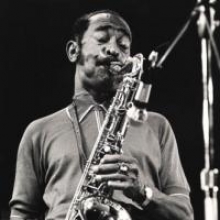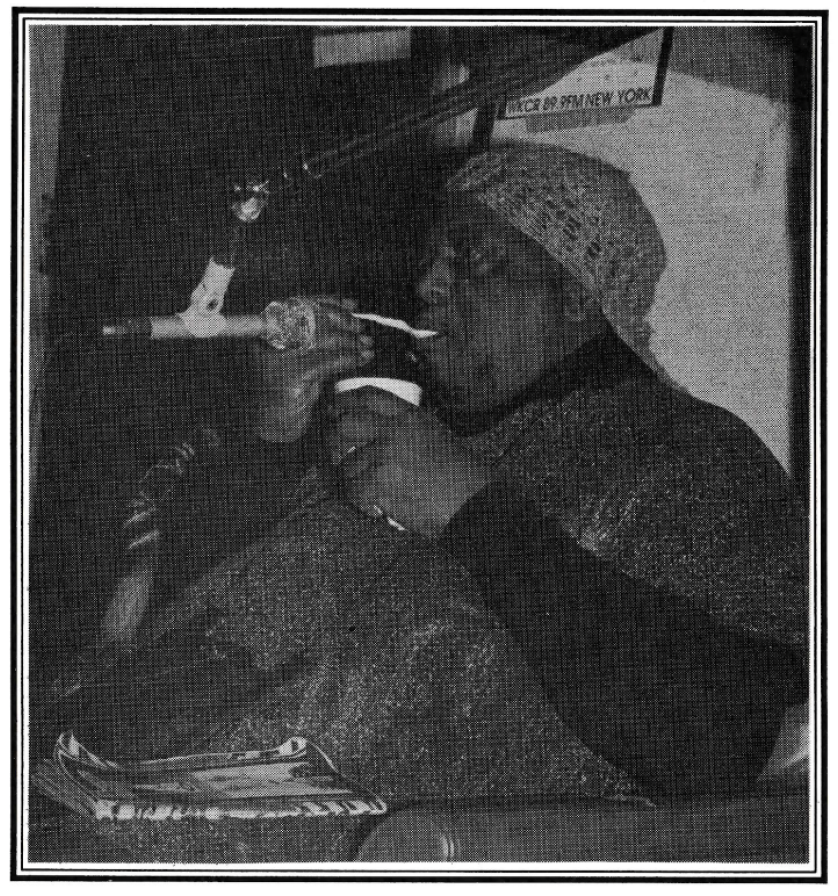
Tune in to WKCR-FM on Sunday October 21 and Monday October 22 for our 48-hour Don Byas centennial broadcast. In honor of the tenor saxophonist’s 100th birthday, this broadcast will celebrate his legacy as a melodic innovator, dynamic sideman, and prolific leader during the late 1930s, through the birth of bop, and into the 50s and 60s.
Born Carlos Wesley Byas in Muskogee, Oklahoma, “Don” earned his moniker as the leader of a Benny Carter-influenced band, “Don Carlos and his Collegiate Ramblers,” while he was still experimenting with the alto saxophone. He later moved to Los Angeles to perform along the West Coast with artists such as Lionel Hampton, Eddie Barefield, and Buck Clayton. In 1941, Count Basie placed Byas’ name on the map for New York jazz musicians and enthusiasts with a concert that was broadcast live on-air, and this led Basie to officially substitute him for Lester Young as the lead tenor saxophonist in his band. Around the same time, he gained a reputation for regularly performing in after hour jams with such pre-notoriety artists as Johnny Griffin, Dizzy Gillespie, and Thelonious Monk. Byas left Basie in 1943 to pursue a career as a leader and occasional sideman until 1946. While on a tour of Europe with Don Redman in the fall of that year, Byas made the somewhat spontaneous decision to stay there permanently, and soon after moved to Paris where his recording career took off. After officially parting ways with unfavorable working conditions in America, Byas spent much of the rest of his life leading quartets and quintets around France and the Netherlands, touring throughout the continent and performing at numerous festivals. Byas passed away in 1972 at the age of 59.
Don Byas rapidly gained recognition in the early 1940s as a transitional figure that blended the expressive, melancholic tone of Coleman Hawkins with the virtuosic chops attributed to Charlie Parker and the bebop movement. In addition to honing this sound during his stint with Basie, Byas also drew influences from other contemporary legends and band mates such as Andy Kirk and Dizzy Gillespie. He was one of the earlier players to relocate to Europe because he viewed the lifestyle of American jazz musicians as unsatisfactory and financially unsustainable, and while he recorded most of his famous releases in New York, he enjoyed a longer bout of success overseas. Although Byas is perhaps underrated as a saxophonist of the pre- and post-bebop era, we hope to bring his profound talent and impact to the foreground by sharing two entire days of his music and history.
Join WKCR in this centennial celebration at 89.9 FM or online at wkcr.org.
